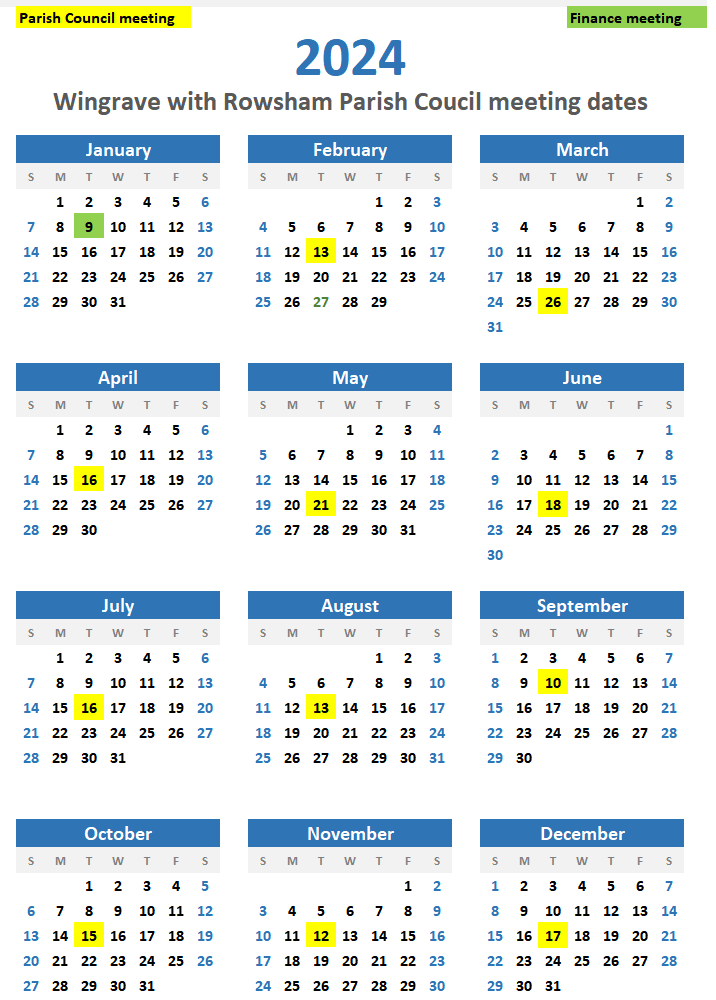Wingrave with Rowsham Parish Council
Welcome to Wingrave with Rowsham Parish Council Website. The Parish Council consists of 8 Councillors, meetings are held at 7:30pm normally on the second Tuesday of alternate months (January, March) in the Community Centre.
Planning meetings to discuss planning applications are held in addition when required. Meetings dates will be found on the Communiqué Diary page. Parishioners are welcome to attend meetings and are invited to comment on any of the agenda items.
From time to time the Council sets up working groups to look at particular issues.
At present we have one on road safety and have recently had another on car parking in Wingrave. If you would be interested in joining please get in touch with the Clerk
What is a Parish?
There are two sorts of parishes, whose boundaries do not always coincide. These are a) Ecclesiastical parishes centred on an Anglican church with a parochial church council, and b) the Civil Parishes, which are part of local administration.
A civil parish is an independent local democratic unit for villages, smaller towns and suburbs of urban areas. Each parish has a Parish (or Town) Meeting, and where the electorate exceeds 200, have a Parish or Town council.
Wingrave with Rowsham Parish Council
Wingrave with Rowsham Parish Council is a small local authority. Its councillors are elected for four years at a time. Vacancies occurring between elections are filled by bye-election (if requested) or co-option. The council is the corporation of the village.
Each year the councillors choose a chairman from amongst their number. There is also a vice-chairman and a clerk, who is the Proper Officer and the Responsible Finance Officer of the council.
Parish Councils have a number of formal powers. Many provide allotments, look after playing fields, play areas and village greens, they maintain and guard things such as rights of way, bus shelters, public seats, small scale street lighting, and often provide village halls and meeting places. The Parish council can do these things by actually providing them itself, or by helping someone else (such as a charity or volunteers) financially to do so. Parish councils have the power to improve the quality of community life by spending sums of money on things which, in their opinion, are in the interests of the parish or its inhabitants.
Councils are also the focal point for local consultation on matters such as planning applications and Borough Council strategic planning. The parish councillors know the village and can represent its views to other authorities such as District and County Councils. They are entitled to be consulted on planning applications and are often consulted on things like schools and roads. They put the parish’s case at public enquiries.
How much do they cost?
Parish councils are the most unbureaucratic and cheapest kind of local authority in existence. Their funds are a tiny part of the council tax. They get no general government grant, and so have every incentive to be economical.
The accounts are strictly audited every year by an internal auditor and the Audit Commission.
Who controls the Parish Council?
You do! You elect its members every four years and you are entitled to go to the annual parish meeting and say what you think.
Members of the public are also welcome to sit in on the monthly council meetings, and participate when there is a public session.

